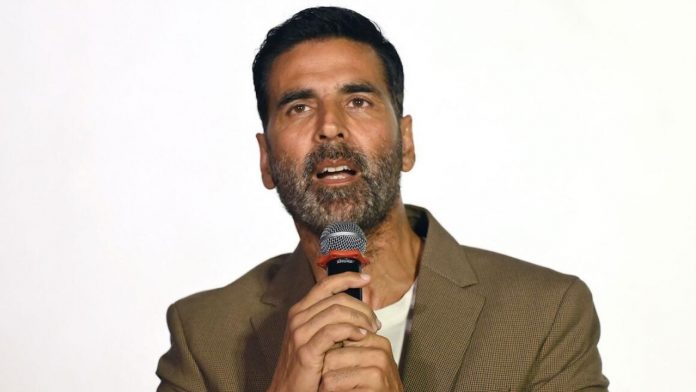Akshay Kumar signeded a three-year contract with the Delhi Daredevils to shoot promotional videos, conduct meet-and-greet events, and make corporate appearances.
According to a new book, Bollywood star Akshay Kumar could have easily played hardball with all the aces up his sleeve, but he instead ended his lucrative deal with Delhi Daredevils (now Capitals) in 2009 after the IPL franchise needed to cut costs. The incident is detailed in veteran cricket administrator Amrit Mathur’s autobiography, “Pitchside: My Life in Indian Cricket,” published by Westland Sport.
“Akshay has signed a three-year deal with the Delhi Daredevils to shoot promotional films, attend meet-and-greet events, and make appearances at corporate events…” Mathur talked about this in his book.
“Aside from Kotla’s act (dangerous stunts), nothing much happened because DD didn’t know how to use him.” At the end of the season, DD chose to cancel or renegotiate the contract against the backdrop of significant financial losses.” Mathur went on to describe how it became a difficult job.
“Akshay’s contract provided no way out; on the contrary, it provided him with solid guarantees for three years.” DD’s lawyers approached Akshay’s employees with the intention of revising the contract, but they were unsuccessful.
“The (legally correct) response from his side was that the contract didn’t factor in early termination and it has run its course with full monetary compensation,” Mathur wrote in his book.
“From the perspective of DD, Akshay’s multi-crore contract could be compared to a self-goal or a hit-wicket dismissal.” Given the dismal financial performance and the need for restraint, the star had become an avoidable expense. Knowing there was no legal way out, DD begged Akshay for mercy.” Mathur said in his book that he was DD’s chosen troubleshooter and met the star in his vanity van during the filming of Chandni Chowk to China.
“After the shot, we returned to his vanity van, and I explained the reason for my visit and outlined DD’s financial problems.”
“No problem ji,” he responded sympathetically. If it’s not working, let’s close it. I assumed I hadn’t heard him correctly.
“Seeing my puzzled expression, he slowly clarified, ‘Isko khatam kar dete hain (let us end this)’.” When I complained about the onerous contract conditions, he reassured me, ‘Koi baat nahin, main lawyer ko bol dunga (No problem, I will notify the lawyer)’.” The actor’s generosity astonished him.
“Even after so many years, I am surprised that Akshay waived off such a large sum of money,” Mathur continues. Just like that, a spur of the moment decision when he could have easily tossed the contract at us.” The book gives readers an inside look at Indian cricket, and Mathur’s three-and-a-half-decade affiliation with the establishment provided many first-hand experiences.
This is not the book for anyone searching for disputes. While he recounts several heartwarming stories from his tenure as administrative and media manager, many of them are already familiar to cricket fans.
Although this is a really readable book, some of the incorrect facts are a bit disappointing.
He claims (on Page 29) that Ravi Shastri resigned from all forms of cricket following the 1992-93 South Africa trip. That’s the first incorrect fact.
While Shastri never played for India again after that tour, he led Mumbai for the full 1993-94 season, and they won the final in March 1994, defeating Bengal.
The even more blatant inaccuracy is on Pages 32 and 33, where he describes the historic Mankading incident involving Kapil Dev and Peter Kirsten, and then Kepler Wessels slapping the Indian great on the shin on the pretence of turning for the second run.
Mathur stated that the incident occurred during a Test match since Kapil told the squad during tea time, but it actually occurred during an ODI game prior to the Tests.
The third came on Page 187, where he depicts Irfan Pathan as a Test debutant ahead of the Pakistan series’ Lahore Test in 2004.
Pathan, on the other hand, had made his Test debut in Adelaide in December 2003, during the previous series.














